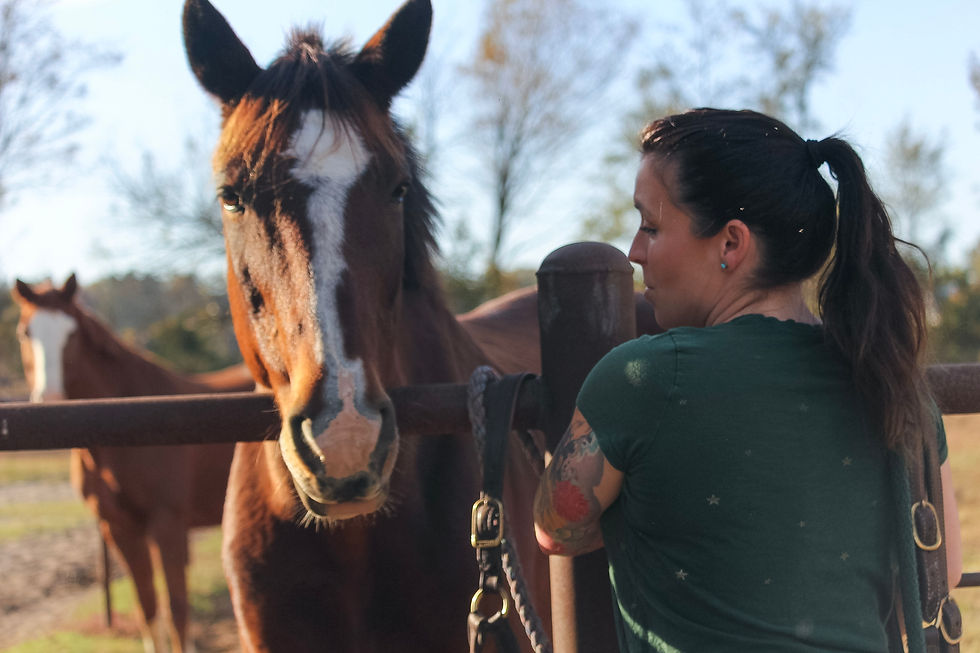Eli T. Photo
A heart for horses: Ali Smith’s Southern Edge and behind the desk at ExEL
Eli Thompson
By
Interviewee
Ali Smith
March 25, 2025
Date
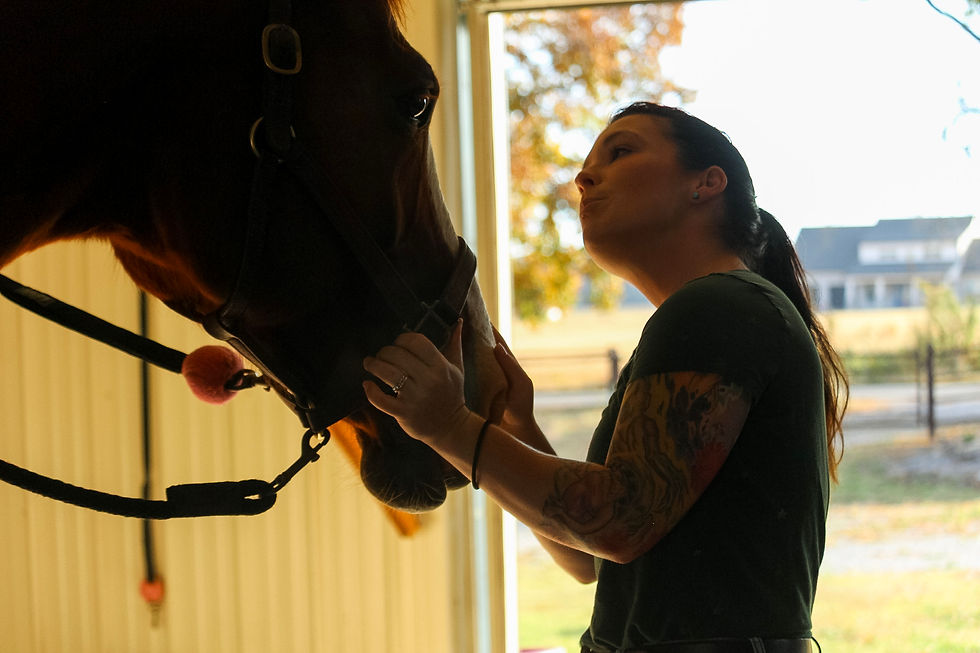
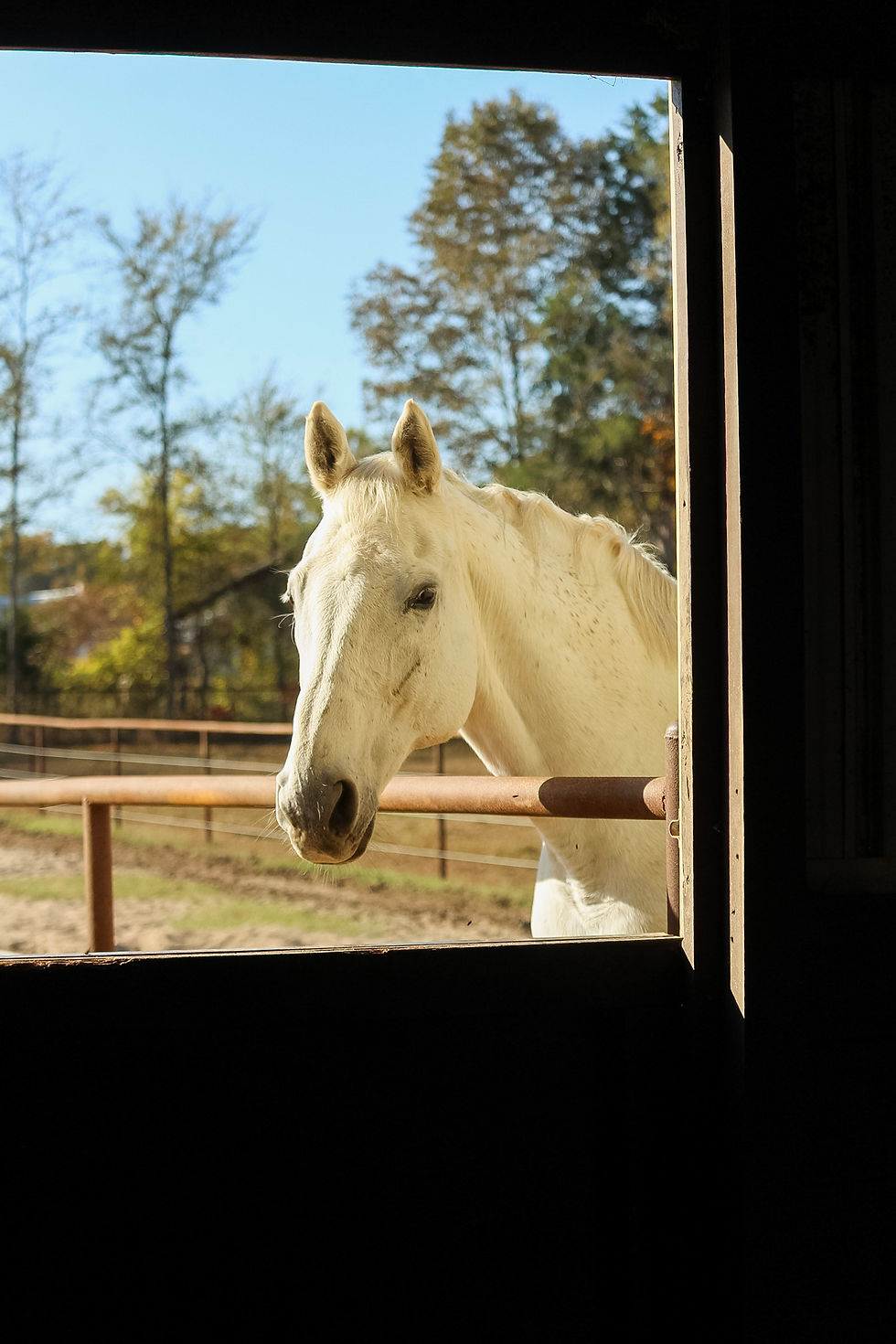



The entrance to the Southern Edge stables. All the horses are outside before their dinner is ready.
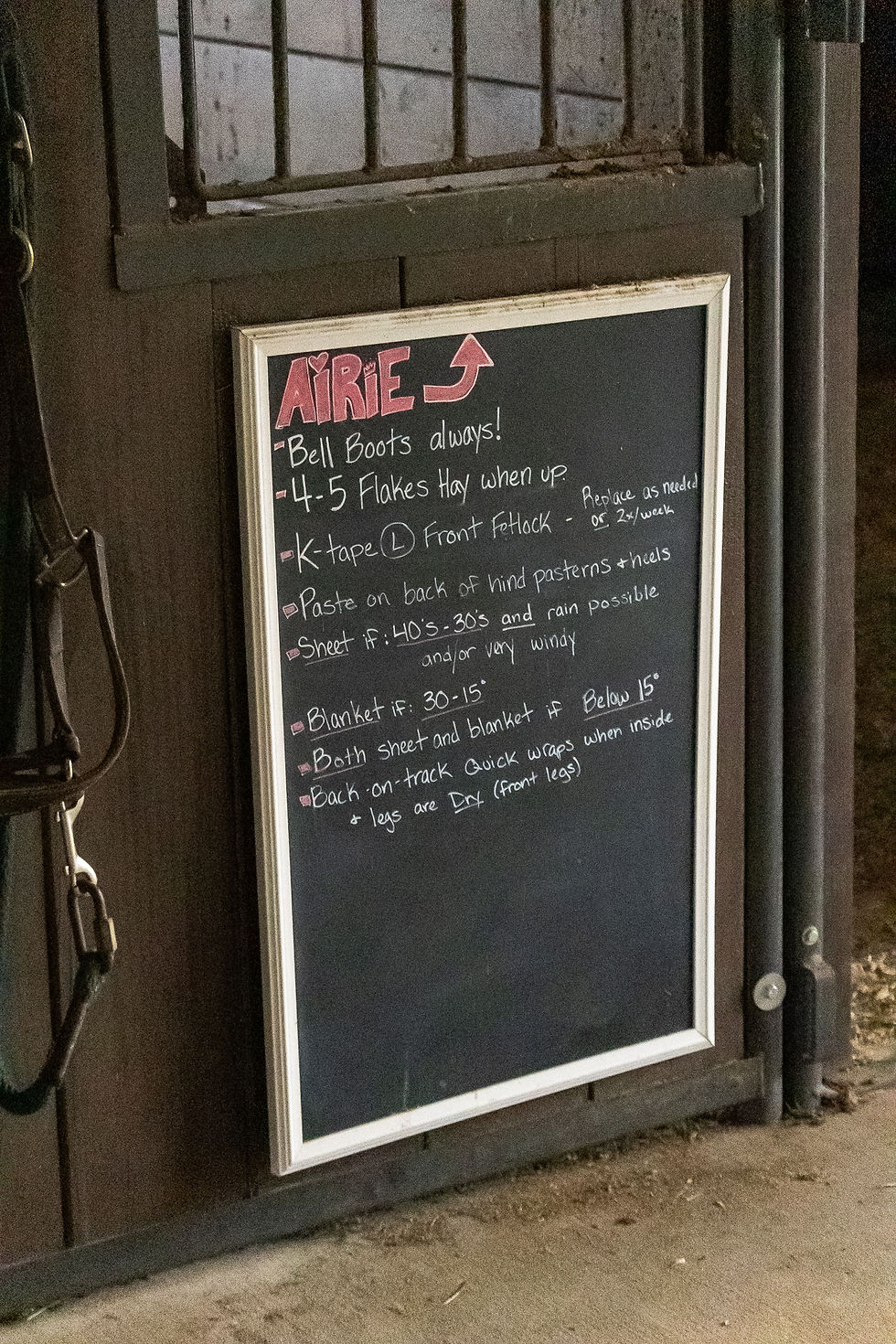
Smith has chalkboard at every horses' stall. Written are the blanketing and wrapping instructions for Airie.
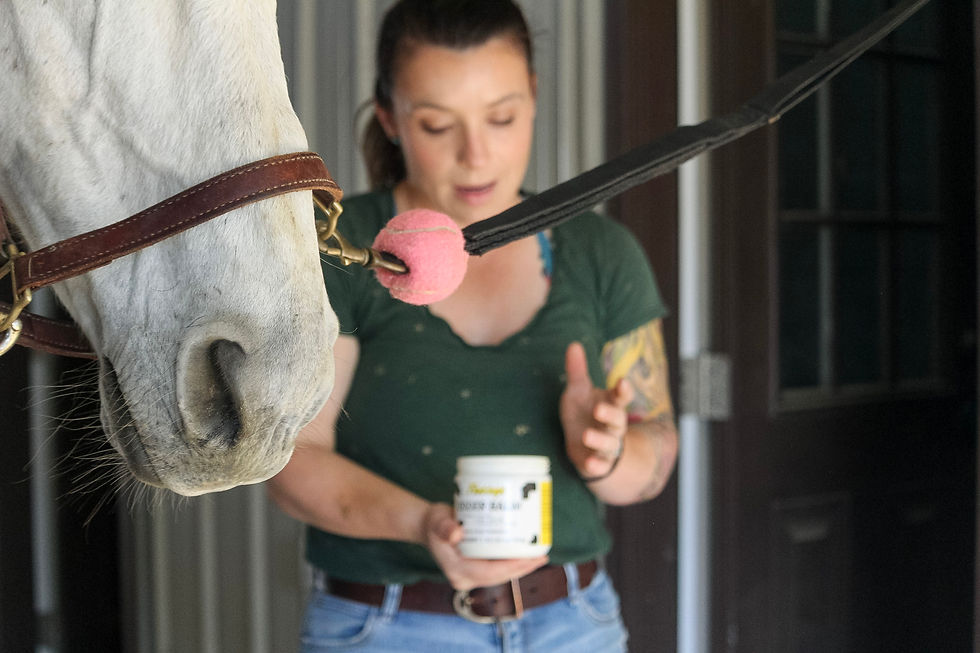
Smith is preparing ointment to put on Johnny's, a thoroughbred, leg that he had rubbed a sore into.

The horses in the pasture talk to each other through the fence. Usually, Smith likes to keep them all together, but with a new horse added to the mix, she has them seperated for now. Fritz (left) still likes to hang out with Margo (right).
The Equestrian Experience League horse shows roll around several times a year, where you’ll find Ali Smith in the office. She keeps track of everyone’s entries, making sure bills are paid, and, occasionally, getting lunch orders for the other staff.
When she’s not behind the desk, however, she’s at her own farm, Southern Edge in Moscow, TN.
“I specifically cater to retired horses because I have a soft spot for them,” Smith said. “I feel like they give us so much.”
The horses are fed at 6 a.m. and again at 6 p.m. with several bouts of chores in the middle. This includes wraps, medications, and ointment/sunscreen application. Airie, Smith’s old hunter mare, needs 15 Zyrtec daily. Smith is usually on her own for these chores.
ExEL shows have a track record of going late into the night, and with five horses in her care, Smith asks for help to cover her.
“Sometimes it can be really stressful,” she said. “Prior to those [ExEL] dates, sometimes farm help bails.”
But with senior and retired horses in her care, it’s not as simple as making sure they have grass in the field and a cozy bed at night.
“Some of it is definitely the prep work. Like making sure that I have enough grain to get all the way through Friday to Monday morning,” Smith said.
Often, Smith invites the owners of some of the retirees to come to the farm and help with chores for their horse, if they want, to help simplify the work for her farm help. But even with the help, Smith finds herself back at the barn after ExEL.
“There were just some really late nights and some really long days. Sometimes you just come home and you do wound care,” she said.
Smith finds her farm pretty manageable, though. With five horses and room for one more, the smaller and acclimated herd makes it easier to give the retirees a pleasant pasture life.
As much as she enjoys giving back to her horses, she doesn’t have space to keep all the ones that come her way. Since 2023, she has taken in three new horses as others have passed.
“One of my friends runs a much larger retirement facility, and she’ll send people my way,” Smith said. “We try to coordinate… a lot of it is word of mouth.”
Despite the obstacles with orchestrating care for her retired horses, the most challenging thing Smith faces is their death.
“It’s really hard to know when to make the call early enough to where they weren't suffering,” she said. “You’re coordinating with the owners, too, it’s ultimately up to them.”
Tough decisions about horse welfare are often left to Smith, whether at home or in the office. March 28, the first ExEL of the year was supposed to commence, but was postponed due to a recent outbreak of equine coronavirus in the area.
Smith and other members of the ExEL team decided to move the date to late April as the incubation period for equine COVID is 21 days long.
“New cases just kept popping up. And it was just finally like, we gotta make the call,” she said.
Most trainers and students were very receptive to the reschedule, sharing their concerns about attending this weekend. Smith said trainers had said “it’s not worth the risk,” and had preemptively scratched them from their classes.
Now, Smith gets an unplanned weekend with her horses while local shows prepare to hunker down during the recent outbreak.

